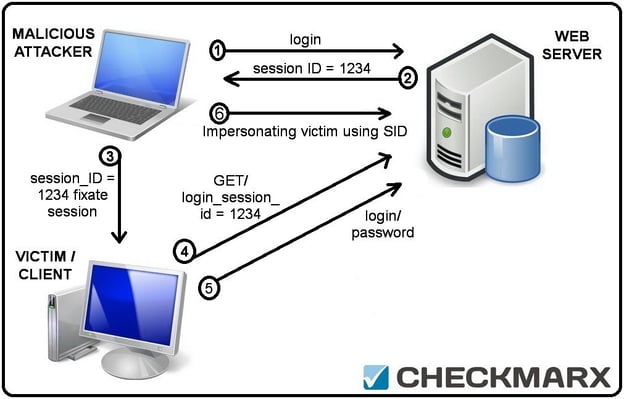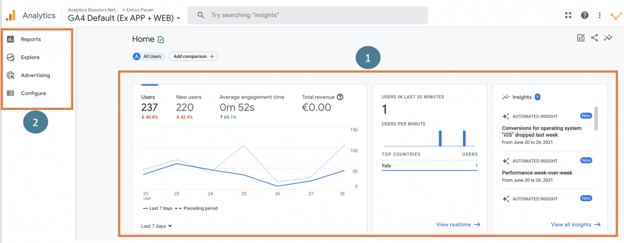Google’s Universal Analytics (UA) is officially being sunsetted in July of 2023. Universal Analytics has been the industry standard for eCommerce conversion tracking since 2013. While Universal Analytics has a comprehensive feature-set, modern security protocols prohibit this traditional tracking model from gathering the requested information from a majority of users. Learn how Google Analytics 4 (GA4) will impact your eCommerce website by reading on!
Understanding Universal Analytics
Google’s Universal Analytics platform collects information on website users through the use of cookies. These cookies are installed on your users’ web browser, allowing Google to track their browsing history across the internet. In many cases, this results in a pleasant user experience by allowing users to browse from page to page without needing to log in each time they visit a new page.
Security Risks of Cookies
Unfortunately, cookies also present a series of obstacles that makes users less willing to accept them as they become aware of the potential security risks. These security risks range from identity theft to ransomware, so it is important to only accept cookies from reputable websites.
XSRF - Cross-Site Request Forgery Attacks
When a website detects a relevant cookie, it cannot distinguish the difference between an illegitimate or a legitimately placed cookie. This means that a bad actor could program a malicious website to execute a series of negative actions on behalf of a user such as sending an email, deleting important files or copying sensitive user data.
Session Hijacking
This attack happens when a session ID parameter is included in the user-specific website URL. This allows for a website administrator with appropriate permissions to use that URL to log in to your personal account and make changes on your behalf.

Cookie Capturing
Cookie capturing, while sounding delicious, is an attack of negligence on behalf of website administrators. When cookies are being used to authenticate a user, the information must be transferred to the server and back using secure SSL/TLS channels. When the cookie is sent without the proper security protocol, a hacker can view network traffic and potentially grab the insecure cookie to access your account.
Understanding Google Analytics 4
Google Analytics 4 is a fairly large departure from the previous model that Universal Analytics operated under. While the way in which these models operate varies greatly, the majority of functionality that merchants are looking to capture can be obtained.
How to implement GA4 Tracking
Implementing Google Analytics 4 tracking codes across your website is a very similar process to that of Universal Analytics. The first step is to create a Google Analytics 4 account. Once created, all tracking occurs on the basis of parameters and events. In Universal Analytics, there were specific hit types for pageviews, events, transactions, etc. In Google Analytics 4, every hit type is defined as an event. After installing the GA4 base code, your website will begin collecting information on each of these events. We recommend comparing simple metrics such as sessions, users and visits by device type from both UA and GA4 to ensure that the new system is tracking information properly.
What GA4 Means For Your Business
Unfortunately, Google Analytics 4 does not offer the best eCommerce tracking when compared to UA. Google is working hard to supplement GA4’s current capabilities, and we expect them to expand by the time that UA is officially unavailable. For this reason, we recommend that our clients use a more sophisticated data-collection platform such as Glew.io.
The promise of GA4’s improvement in the eCommerce department is important as it offers much better cross-device and cross-platform tracking through the use of app and web data. Learn more about setting up eCommerce tracking with GA4 here.
The Bad of Google Analytics 4
Backend Views
The back-end views you have previously set up in UA will not be available in GA4. This is a hot-button topic for long-time users of Universal Analytics as marketing agencies have used views to filter out internal traffic of a client’s website.
No Automatic Email Reports
Many clients have grown to enjoy the weekly, monthly or quarterly reports that Google Analytics would automatically send out without additional lift from their marketing agency. These reports are not available at the time of this blog, and creating them will add additional workload to the team until implemented.
New Interface
Google has been known to try new interfaces in order to find what users like and dislike. For those of us who have become extremely proficient in the use of Universal Analytics and Google Analytics 3, the new user interface will create points of frustration for a few months. Luckily, we will not need to remember both interfaces for long as the previous version of analytics is being phased out.
Exciting New Functionality
The changes to Google Analytics 4 are not all bad. Here are a few of the features that we are excited to see leveraged more in the eCommerce space.
Event-based tracking
Event-based tracking will be a big change for marketers as this transition period takes place. Although this may cause some hiccups for agencies, we believe this change will be for the best. By allowing marketers to gather the information they want while respecting user privacy, this change is an all-around win.
Unified User Experience
We really like the majority of changes made to the Google Analytics 4 user interface. By simplifying and streamlining a lot of the core functions, it is only a matter of time until marketing experts become accustomed to the interface.
Accurate Reporting
You may find that certain metrics will appear to dip when compared to those same metrics in Universal Analytics. While this change is obviously due to the changes in reporting, we believe that these changes will offer a clearer and more accurate view of website performance.
Conclusion
There is a lot to get used to with Google Analytics 4 as Universal Analytics is phased out. We believe that this change is for the best and that those using the platform will grow to love it just as they do Universal Analytics. We recommend getting GA4 setup and running now so that you are well-prepared in advance of the actual UA sunset date.
Do you need help creating and measuring impact-driven marketing actions for your eCommerce business? We specialize in growing eCommerce websites upmarket by optimizing your marketing actions for positive results. Reach out to our team of eCommerce experts to bring your eCommerce store to the next level.
E-BOOK
20 Best Shopify Apps For Your eCommerce Store
Explore tags:
About the author
Subscribe to the Groove Newsletter
Get the latest updates and insights straight to your inbox




